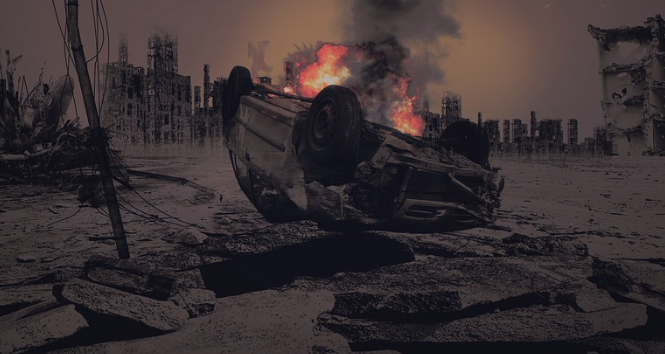Its not a new argument for politicians to claim that video games are influencing or encouraging violent uprisings, crime, or other deleterious activities. But all the same, it’s a lame one.
Now, French President Emmanuel Macron is laying blame to video games for protests regarding the police killing of a teenager during what is alleged a routine traffic stop.
Protesters have set 1,000s of cars ablaze, attacked police stations and banks, and even drove a burning car into the L’Hay-les-Roses mayor’s home. L’Hay-les-Roses is an affluent suburb.
The damage toll is racking up financial gloom at an estimated $1.1 billion. There’s been a lot of arrest.
It all began with the killing of 17-year-old Nahel M. on June 27th during that traffic stop. And since then, politicians, the French President included, have performed subpar in stopping or even containing the uprisings.
President Emmanuel Macron has blamed everyone but himself, most prominently, the media. But he’s also leaned to the old disproven contention that video games are “intoxicating” people.
“It sometimes feels like some of them are experiencing, on the streets, the video games that have intoxicated them,” Macron said in a press conference on July 1.
Macron’s argument is hardly new. Video games have, for decades, been the subject of debate by politicians looking to excuse their own ineptness in governing, or, solving problems.
During the 1990s, the advent of first-person shooter games inspired politicians and the media to make bold, unsubstantiated claims.
Brazilian President Luiz Inácio Lula da Silva also blamed video games for upticks in violence.
“I doubt there is a kid of eight, nine, 10, 12 years old, who is not used to spending a great deal of time playing this rubbish,” he said at a conference to address hate speech on social networks.
An Oxford University 2019 study showed the British teens who played violent video games at early ages didn’t show links to violent crimes later in life.
“You could wave a magic wand and take all these people’s video games away, and that’s not going to have any effect in any way going to help their lives and reduce their aggression,” Christopher Ferguson, a professor at Stetson University in Florida, said.
Here are the facts:
- Lack of Consistent Evidence: Numerous studies have tried to find a link between video game violence and real-world violence, but results have been inconsistent. Some studies report a slight correlation, while others find none at all. The American Psychological Association, in a 2017 statement, clarified that there is insufficient evidence to support the claim that violent video games directly lead to criminal violence or youth aggression.
- Violence Decline: Despite the increase in the popularity and graphic nature of video games over the past decades, violent crime, particularly among the youth demographic, has been decreasing in many parts of the world, such as the United States and Europe.
- Lack of Causality: Correlation does not mean causation. Even in studies where a correlation was found between video game use and aggressive behavior, it is impossible to prove whether aggressive people are drawn to violent games, or if the games were the cause of the aggression. In other words, the direction of causality remains unclear.
- Other Factors: There are many other factors that contribute to violent behaviors such as family environment, socio-economic status, mental health issues, and personal traits, among others. Video games are a small part of a complex mix of factors, and it’s overly simplistic to claim that they alone cause violent behavior.
- Beneficial Aspects: Video games have been shown to have numerous benefits as well, such as improving reaction times, hand-eye coordination, problem-solving skills, and teamwork. They can also provide a safe outlet for frustration and aggression.
In the end, poverty and lack of opportunities are more influential in predicting violence. But politicians are going to do what politicians are going to do.
